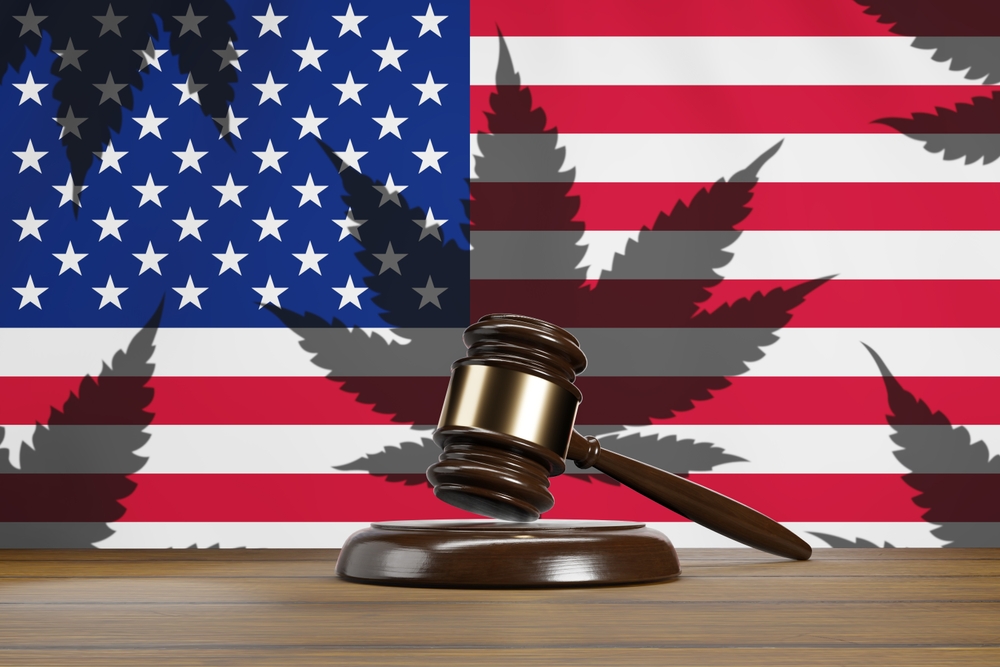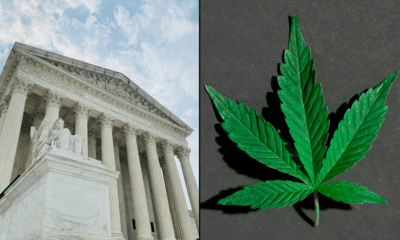A new congressional report has confirmed what many policy experts in the cannabis trade have already known for months about the proposed rescheduling of cannabis by the U.S. Department of Justice: Even if finished, the move will leave the problematic banking situation unchanged.
The report, issued Monday by the Congressional Research Service, noted pointedly that U.S. financial institutions in general face a broad array of disincentives to work with state-legal marijuana companies, given the arsenal of tools federal regulators have to punish such violations by banks.
The news is confirmation that the Biden administration’s proposal to move marijuana to Schedule III from Schedule I is not a cure-all for the U.S. cannabis industry.
“DOJ’s proposed rescheduling of marijuana, in and of itself, is not likely to alter substantially the risk profile associated with providing financial services to state-sanctioned marijuana business,” the report concluded.
The reasoning is simple, the CRS found: There are simply too many federal laws on the books providing for major penalties for banks and credit unions that do business with anyone who traffics in Schedule I controlled substances – including marijuana – and rescheduling has zero effect on any of them.
Anti-money laundering laws and the Bank Secrecy Act are particular deterrents, the CRS reported, under which bank employees could face 20 years in federal prison for “knowingly engaging in financial transactions involving marijuana-related proceeds.” There are additional possible penalties laid out in the federal Controlled Substances Act, and also from administrative enforcement by regulators, the CRS report stated, up to and including asset forfeiture, fines, and imprisonment.
“Financial institutions expend tens of billions of dollars on BSA/AML compliance each year,” the CRS report stated. “Federal banking regulators have reportedly prioritized BSA and AML compliance to fight financial crime in recent years by increasing … enforcement actions and the size of monetary penalties.”
However, despite all of those disincentives, the CRS report noted that the Financial Crimes Enforcement Network of the Treasury Department, also known as FinCEN, issued formal guidance 10 years ago as to how banks could work in a limited fashion with state-legal cannabis companies. That includes mandatory “suspicious activity reports,” or SARs, that banks must file under certain circumstances, such as receiving cash deposits of $10,000 or more.
At least 680 banks and other financial institutions already provided at least limited services to the marijuana industry as of March 31 this year, the CRS report noted. Those institutions have filed a total of 410,000 SARs with FinCEN as of that date.
But, CRS noted, it’s unclear if all of those 680-some institutions are working directly with plant-touching cannabis companies, such as dispensaries and cultivators, or more with ancillary businesses, such as landlords or other service providers to cannabis companies.
Either way, rescheduling would have zero impact on that situation, CRS concluded.
“Bank responsibilities under the BSA and AML laws and banking regulator enforcement authorities would likely remain largely the same if marijuana became a Schedule III drug,” the report stated. “Consequently, financial institutions would likely continue to face significant legal risks under federal law for serving marijuana-related businesses even if marijuana were moved to Schedule III.”
Rather, to fix the cannabis banking quandary, it’ll take an act of Congress, the CRS noted. It pointed out that the SAFE Banking Act has passed the U.S. House of Representatives seven times only to die in the Senate, and that a Senate version of the measure – the SAFER Banking Act – has been in limbo in a committee since December. The latest House version of the bill has also languished in committee since last May.
The cannabis rescheduling process, which was kickstarted in 2022 by President Joe Biden, is slated for a hearing at the headquarters of the Drug Enforcement Administration on Dec. 2. The process may yet be upended if former President Donald Trump wins re-election in November, however, given that Trump has not staked out any real policy position on cannabis.
CRS rescheduling report

 California Cannabis Updates1 year ago
California Cannabis Updates1 year ago
 Breaking News1 year ago
Breaking News1 year ago
 best list1 year ago
best list1 year ago
 Business1 year ago
Business1 year ago
 Business1 year ago
Business1 year ago
 cbd1 year ago
cbd1 year ago
 Bay Smokes1 year ago
Bay Smokes1 year ago
 autoflower seeds1 year ago
autoflower seeds1 year ago
















































